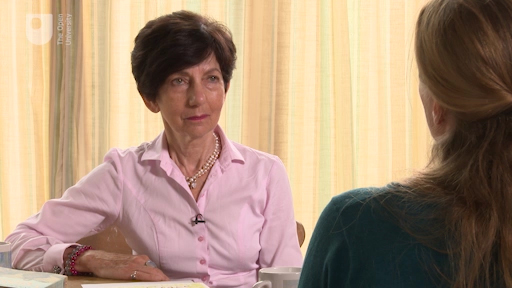4 Reactions to stress
Autistic people may experience enormous stress and anxiety as a result of any of the traits just described. Social situations, the disruption of familiar routines and activities, or exposure to aversive sensory stimuli such as textures, smells and sounds, may be confusing, overwhelming or even frightening. In such situations, both children and adults with autism may resort to activities or behaviours which seem particularly unusual to others, but which help the person to manage and reduce the stress they are feeling.
Listen to Arabella again:

Transcript
Sometimes, in response to an unbearable level of stress, an autistic person may have a ‘
During our first hour on the road, Elijah rifled through hundreds of stickers I had brought along to keep him busy in the car. He feverishly peeled them and pasted them onto a large piece of cardboard like a small machine with his strict and narrow concentration. In the rear-view mirror, I saw the waxy paper backings of the stickers piling up in the back seat like fluffy patches of snow surrounding him. When he had peeled the very last sticker from its paper he let out a screech. Quickly, I popped the Pinocchio soundtrack into the tape player to redirect him, but to my dismay, I had forgotten to rewind it.
… ‘REEE…WIND’ he bellowed when he suddenly heard Pinocchio’s voice singing mid-song.
Stress reactions are likely to happen regardless of the person’s level of functioning. For instance, high-functioning teenagers with all the intellectual skills necessary to attend university, are quite likely to struggle with living away from home, dealing with personal care and the constant pressure to socialise. It is important that their tutors or mentors are aware of the additional emotional strains they are under, and that the university has support strategies in place.
